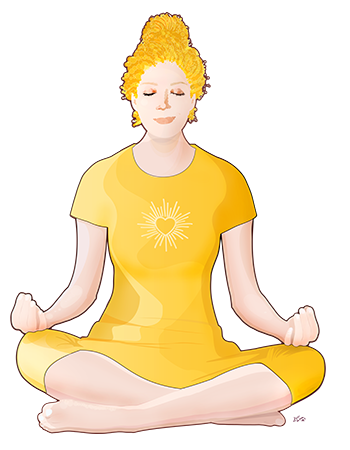Mom's Guide to Self-Care: 7 Tips for Naturally Good Sleep

The need for sleep is never clearer than when you have a cranky toddler on your hands.
That’s why most parents have multi-step sleep routines for their kids: bath, brush, books, bed, repeat! As parents, we’ll do anything to make sure our kids get the sleep they need to wake up refreshed and rested. Nobody has time for morning meltdowns or angry afternoons.
And while we might not think of it in the same way, we all have sleep routines, too. Find out if you’re setting yourself up for a healthy night’s sleep with our experts’ top tips.
Why it’s wonderful self-care: “Don’t overestimate the power of a good night’s sleep!” Spark says. While too much sleep or not enough are warning signs of a mental health problem, healthy sleep can prepare our bodies to handle day-to-day stress. Adults should shoot for seven-nine hours of sleep each night.
7 Tips for Naturally Good Sleep
Avoid screens — “Because we live in a society of electric lights, cell phones, tablets and TV, we often unknowingly circumvent our body’s own ability to regulate sleep.” McLeain suggests staying away from screens for at least an hour before bedtime.
Try exercising — Getting 30 or so minutes of activity about an hour before bed can help you feel sleepy when it’s time to pull up the covers.
Draw a warm bath — After working out, take a warm bath or shower to help you relax. Bonus: Buy a special bubble bath, scrub or lotion to enhance this habit.
Drink warm milk — While the ritual of drinking a warm beverage before bed can cue sleepiness in and of itself, sipping milk or adding cream to an herbal tea may have a chemical benefit. Milk contains tryptophan, a building block of serotonin. Serotonin, in turn, gets converted to melatonin.
Keep a nighttime journal — “Journaling the highlights of one’s day can help to close one’s mind at night,” McLeain says.
Create a comfy environment — Set the stage for sleepy success by making sure your room is dark and cool and your mattress is comfortable.
Try melatonin — Our bodies produce melatonin, the sleep hormone, when it gets dark outside. It helps us feel sleepy and stay asleep. McLeain suggests trying over-the-counter melatonin supplements if you struggle to fall asleep.
This article orginally appeared in our 2020 May issue.
Mom's Guide to Self-Care
Support Mental and Physical Health to Create Total Wellness
How to use our guide: We collected tips and tricks for major subsections of self-care: mental health, movement, treats, sleep and mindfulness. Explore and be inspired by our guide to start or tweak your own self-care routine.
► Help for Moms in an Anxious World

► Keeping Mom Well: Gray Hair, Self-Care

